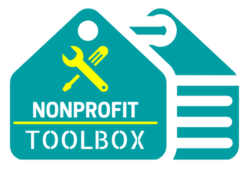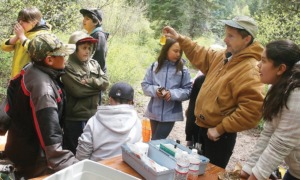As a leader committed to transforming the lives of youth, the mission impact of your charity begins with you. The youth of today are counting on you to make good choices and take care of yourself over the long haul.
Why is it we continue to work when we are exhausted? Skip breakfast and the gym for early morning meetings? Regularly decline fun with friends and family for work obligations?
Self-care isn’t just a trendy term to toss around at dinner parties — it is a non-negotiable human activity. Consistently sidelining our own care, sleep, hydration, movement, nutrition and adventure, it results in diminished capacity to show up in the world.
Burnout among service workers is a real and dangerous condition. It not only causes us to feel resentment and unhappiness in the short term, the chronic stress takes a toll creating very real and painful medical conditions.
Equally bad is allowing the burnout to snuff out our passion and make us tap out from the work altogether. The world needs you to take care of you. Here are three simple ways to recharge.

Courtesy of Janeal Ford
Janeal Ford is the president and CEO of Fordable Fundraising
1. Recognize how strong and resilient you are already
We live in a harsh world that is full of danger at every turn. There are so many horrifying diseases, afflictions and darkness in the world and you have outpaced all of them.
If you are working in a nonprofit, you are doing really hard things every day. None of us have ever been through a pandemic, let alone a recovery from one. Celebrate how far you’ve come and go easy on yourself.
2. Turn off ‘The Analyzer’
Nonprofit leaders are some of the smartest people on the planet but quite frankly, there are drawbacks to being smart. Often our intelligence has us constantly thinking and analyzing everything. Let’s face it, overthinking and rumination is a major contributor to our worry and anxiety. I believe it is also the source of the impulse to push through even when we are exhausted. If you could imagine this overthinking as a machine in your mind, it would be called The Analyzer, and the best news is you have the power to shut it off. The Analyzer is a good tool for discerning data in reports but have it on all the time, and we suffer.
Close your eyes and take a deep breath. Visualize a big switch in your head. The switch can look like a simple lightswitch or maybe it looks like mine, a massive cartoon-like electrical switch. Whatever you come up with is just right. Now, visualize yourself turning the switch off. Take a moment and feel the difference this makes in your mind and body.
3. Practice gratitude
If you feel anger, sadness, frustration or other negative emotions and push them away or don’t allow yourself to experience them, they will come back. Sometimes this can manifest as high blood pressure or depression, and sometimes the pain can lead us to substance use or other harmful behaviors.
One of the easiest and simplest ways to shift out of a funk is to practice gratitude. Studies have shown that if you keep a gratitude journal once a week for six weeks, you will be more grateful, which in turn results in improved outlook and happiness.
Serving and healing youth is part of your unique purpose and the mission impact of your organization is dependent on you. Recognizing our strengths, curbing our ruminating thoughts and practicing gratitude allows you to continue your important work in the world for a long time.
***
Janeal Ford is the president and CEO of Fordable Fundraising and has served in the nonprofit sector for more than 20 years. As a fundraising professional, board member, community volunteer, and consultant, she has helped charities raise millions of dollars. Ford received a bachelor’s degree in sociology and a master’s in public administration from the University of Utah.































